Coriander seeds might be small, but their impact on your health and kitchen is enormous. Here’s a staggering fact to set the stage: these tiny seeds pack over 11 distinct health-boosting properties, from strengthening your heart to giving your skin a radiant glow. But that’s not all—they’re also a culinary powerhouse, elevating flavors in cuisines worldwide, from fragrant curries to zesty spice blends.
Yet, many people overlook their true potential. You don’t have to fall into that trap. Whether you’re looking to support digestion, boost your immunity, or add a natural detox element to your diet, coriander can do it all. And the best part? They’re accessible, affordable, and incredibly versatile.
By the end of this article, you’ll know exactly why coriander seed deserve a prime spot in your pantry—and how you can seamlessly incorporate their magic into your daily life. Get ready to unlock 11 remarkable powers that might just transform your health and well-being!
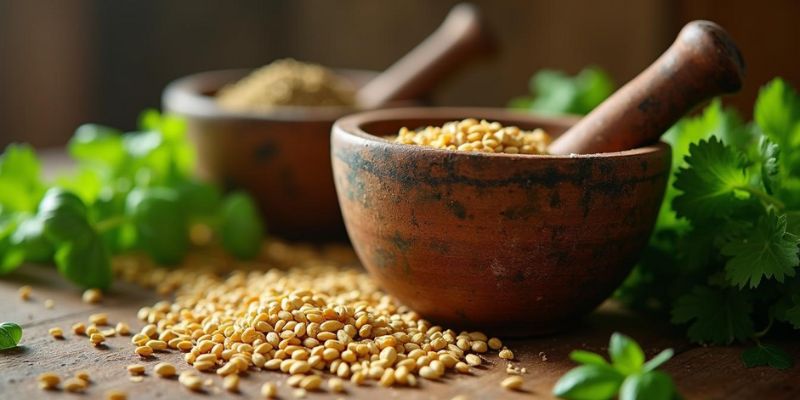
1. Rich Source of Nutrients
Packed with Essential Vitamins and Minerals
Coriander seeds are small but mighty when it comes to nutrition. Just one tablespoon (5 grams) contains approximately 35 mg of calcium, which is essential for maintaining strong bones and teeth. They also provide 1 mg of Vitamin C, a powerful antioxidant that supports your immune system and promotes healthy skin. Additionally, coriander seeds are a good source of Vitamin K, which is vital for blood clotting and bone health.
Micro-Nutrition for Everyday Wellness
These seeds are also rich in trace minerals that play a significant role in overall well-being. For example, a tablespoon offers 16 mg of magnesium, which helps with energy production and muscle function, and 0.8 mg of iron, which is crucial for oxygen transport in the blood. They also contain 63 mg of potassium, which supports heart health by regulating blood pressure, and manganese, which aids in brain function and bone development. Adding just a teaspoon of coriander seeds to your meals can provide these essential nutrients, making them a simple yet impactful addition to your diet.

2. Boosts Digestive Health
How Coriander Seeds Aid Digestion
For centuries, coriander seeds have been a trusted remedy for digestive woes. They stimulate the production of digestive enzymes, helping your stomach break down food more effectively.
Pro-Digestive Properties of Coriander Seeds
Bloating? Gas? Indigestion? A warm concoction of coriander seed tea can bring instant relief. These seeds contain compounds like linalool and borneol that calm your gut and alleviate discomfort.

3. Supports Healthy Metabolism
Coriander as a Metabolic Booster
A well-functioning metabolism is key to overall health, and coriander seeds can give it the nudge it needs. These seeds enhance metabolic rate by helping the body utilize fats and carbohydrates efficiently.
Thermogenic Properties for Weight Management
Coriander seeds act as natural thermogenic agents, gently raising your body’s temperature and encouraging calorie burn. For those aiming at weight management, a coriander infusion offers a simple, low-cost solution.
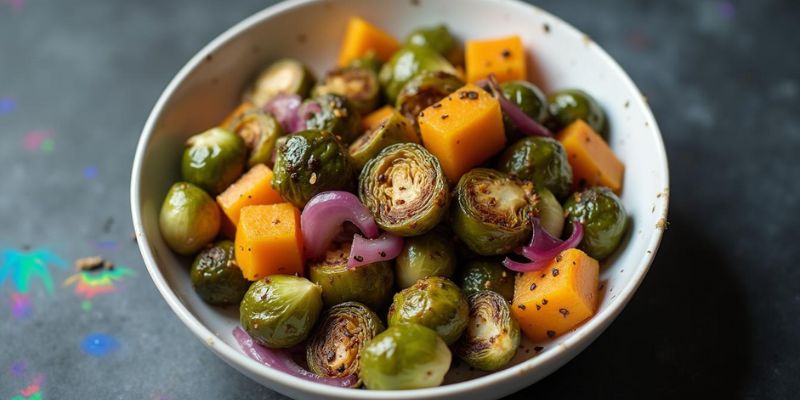
4. Rich in Antioxidants
Fighting Free Radicals With Coriander
Coriander seeds are packed with antioxidants like quercetin and tocopherols. These powerful compounds combat oxidative stress by neutralizing free radicals, which can damage your cells.
Antioxidants for Youthful Skin
Want glowing skin? Coriander seeds might be your new best friend. Their antioxidants fight early signs of aging, improve skin elasticity, and reduce pigmentation, promoting a youthful, radiant appearance.
5. Promotes Heart Health
Coriander’s Role in Lowering Cholesterol
High cholesterol levels are a major risk factor for heart disease, but coriander seeds can help. These seeds lower LDL (bad cholesterol) while improving HDL (good cholesterol) levels. A win-win for your heart!
Heart-Friendly Properties of Coriander Seeds
Coriander seeds also help regulate blood pressure. Their potassium-to-sodium ratio supports balanced electrolyte levels, easing strain on your heart and reducing hypertension.

6. Natural Remedy for Diabetes
Blood Sugar Control Made Easy
For those managing diabetes, coriander seeds can be incredibly helpful. They’re known to improve insulin secretion and sensitivity, helping regulate blood sugar levels effectively.
Integrating Coriander into a Diabetic-Friendly Diet
Sprinkle crushed coriander seeds over roasted vegetables, soups, or even yogurt. This simple habit can help manage spikes in blood sugar while adding layers of flavor to your meals.
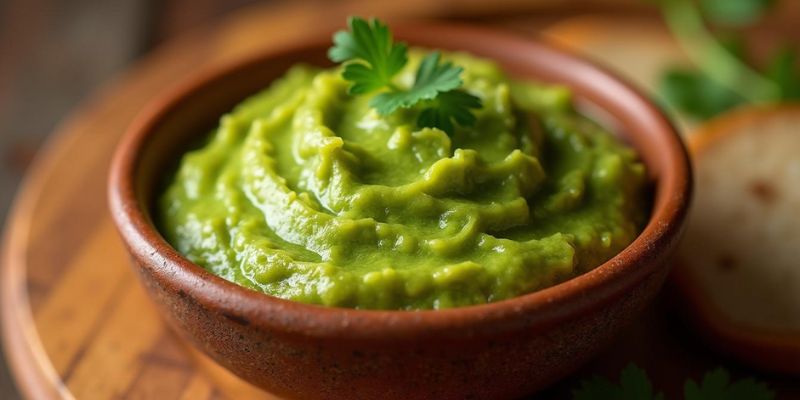
7. Improves Immune System Function
Immunity-Boosting Properties of Coriander Seeds
A robust immune system is your first line of defense, and coriander seed can help fortify it. Their antimicrobial compounds fend off harmful bacteria and infections.
Traditional Uses in Immunity for Generations
Coriander seed have long been used in traditional medicine. For example, in Ayurveda, they’re combined with spices like turmeric to enhance their immune-boosting effects. Start with a coriander tea during flu season—it makes a world of difference.
8. Enhances Skin Health
Say Goodbye to Skin Issues With Coriander
Suffering from acne, eczema, or rashes? Coriander seeds can help. Their anti-inflammatory and anti-bacterial properties soothe the skin and reduce redness and irritation.
DIY Coriander Skin Remedies
Blend coriander seeds into a paste with honey and turmeric for a quick spot treatment. Alternatively, boil the seeds and use the cooled water as a toner to purify your skin.
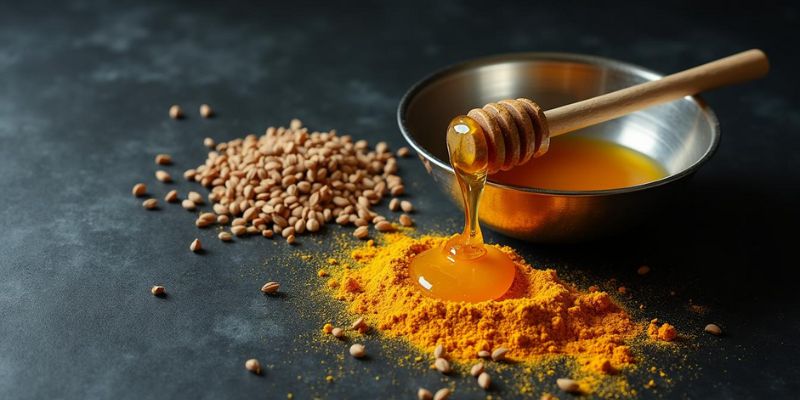
9. Aids in Detoxification
Coriander as a Natural Detox Agent
Toxins like heavy metals can build up in your body over time, but coriander have chelating properties that help flush them out. Plus, they’re a mild diuretic, promoting natural detoxification.
Detox Water Recipes Using Coriander Seeds
Make a coriander detox water by soaking crushed seeds overnight. Drink it on an empty stomach in the morning to cleanse your system and kick-start your day.
10. Supports Respiratory Health
Breathing Easy With Coriander Seeds
From pesky colds to seasonal allergies, coriander seed can support your respiratory health. Their anti-inflammatory properties reduce nasal and sinus swelling.
Anti-Inflammatory Benefits for Respiratory Relief
To soothe a sore throat or cough, brew a coriander tea. It’s a gentle, natural remedy that’s as effective as it is comforting.

11. Improves Hair Health
Lustrous Locks With Coriander Seeds
Hair fall and dandruff can be frustrating, but coriander seeds are rich in essential oils that promote scalp health and boost hair growth. Regular use can result in stronger, shinier hair.
DIY Hair Mask With Coriander Benefits
Mix powdered coriander seed with coconut oil and apply it to your scalp. Leave it on for 30 minutes before rinsing—it’s a game-changer for improving scalp health.
Discover why Ground Cardamom: 10 Glorious Benefit Perks—unlock its amazing health benefits, versatile uses, and easy ways to elevate every dish by clicking here for the full guide
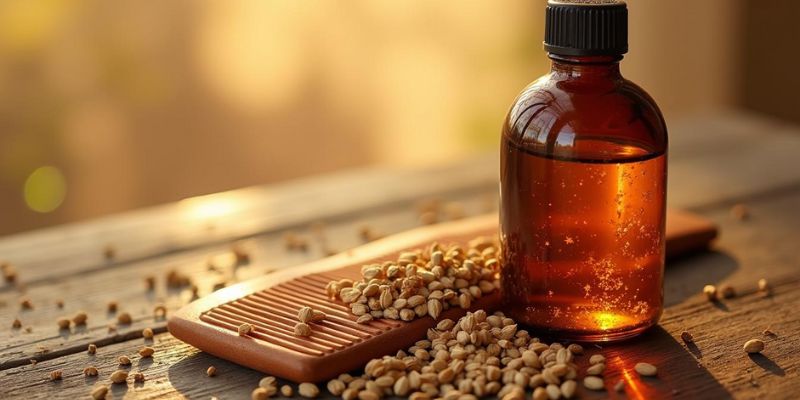
Conclusion
From improving digestion to promoting glowing skin, coriander seeds are a powerhouse of benefits. They’re easy to use, inexpensive, and incredibly versatile—a true win for both your health and taste buds. Whether you brew them into tea, incorporate them into your favorite dishes, or use them in DIY remedies, coriander seed hold a treasure trove of potential.
Now it’s time to take action. Head to your kitchen, grab a handful of coriander, and start unlocking their incredible powers today. Your health—and your pantry—will thank you!
Discover how cinnamon spice can transform your health, meals, and daily routines—read our full article, “12 Reasons Cinnamon Spice is Magical,” and uncover its extraordinary benefits!
Stay connected with us!
- Follow us on Instagram: @RoastedKitchen25 for daily cooking inspiration.
- Subscribe to our newsletter for exclusive recipes, expert tips, and kitchen hacks straight to your inbox!
FAQ
1. Can I eat coriander seeds every day?
Absolutely! Consuming coriander daily in moderation can benefit your health. You can add them to meals, brew them into tea, or sprinkle them on salads. Aim for 1-2 teaspoons per day for optimal results.
2. How do I use coriander seed for digestion?
To support digestion, you can make coriander seed tea. Boil one teaspoon of crushed seeds in a cup of water, strain, and drink after meals. This helps reduce bloating, gas, and indigestion.
3. Are coriander seeds good for weight loss?
Yes, coriander can aid in weight management. They boost metabolism and act as a mild diuretic. Drinking coriander seed water in the morning can help support your weight loss goals.
4. Can I apply coriander seeds directly to the skin?
You can use coriander seed in DIY skincare remedies. Make a paste with crushed seeds, honey, and turmeric for spot treatment or boil the seeds and use the water as a natural toner to soothe and cleanse your skin.
5. How should I store coriander seeds to keep them fresh?
Store coriander seed in an airtight container, preferably in a cool, dry, and dark place. This helps preserve their flavor and health-boosting properties for up to 6 months. For longer shelf life, consider refrigerating them.

Food has been at the heart of my life since childhood. My father, a passionate restaurateur, owned and ran Cave Way, a beloved restaurant in Narayanganj, Bangladesh. For 19 wonderful years, Cave Way delighted customers with its warm atmosphere and mouthwatering dishes. It was more than a restaurant; it was a community landmark. When my father passed away, the restaurant’s doors closed, but its legacy lived on in me. As a businessman and food enthusiast, I’ve always felt a connection to the joy and stories that food brings into our lives. Roasted Kitchen is my way of honoring that legacy, sharing my passion, and connecting with others who love cooking as much as I do.

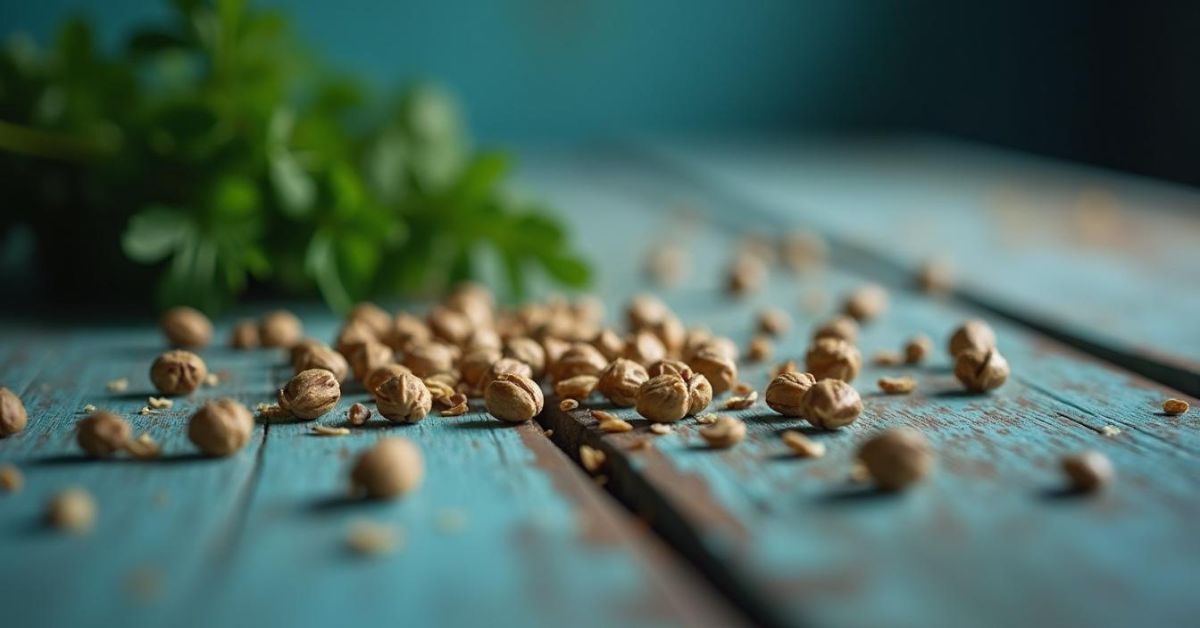








 Subscribe to our free newsletter for tips, tutorials, and insights!
Subscribe to our free newsletter for tips, tutorials, and insights!